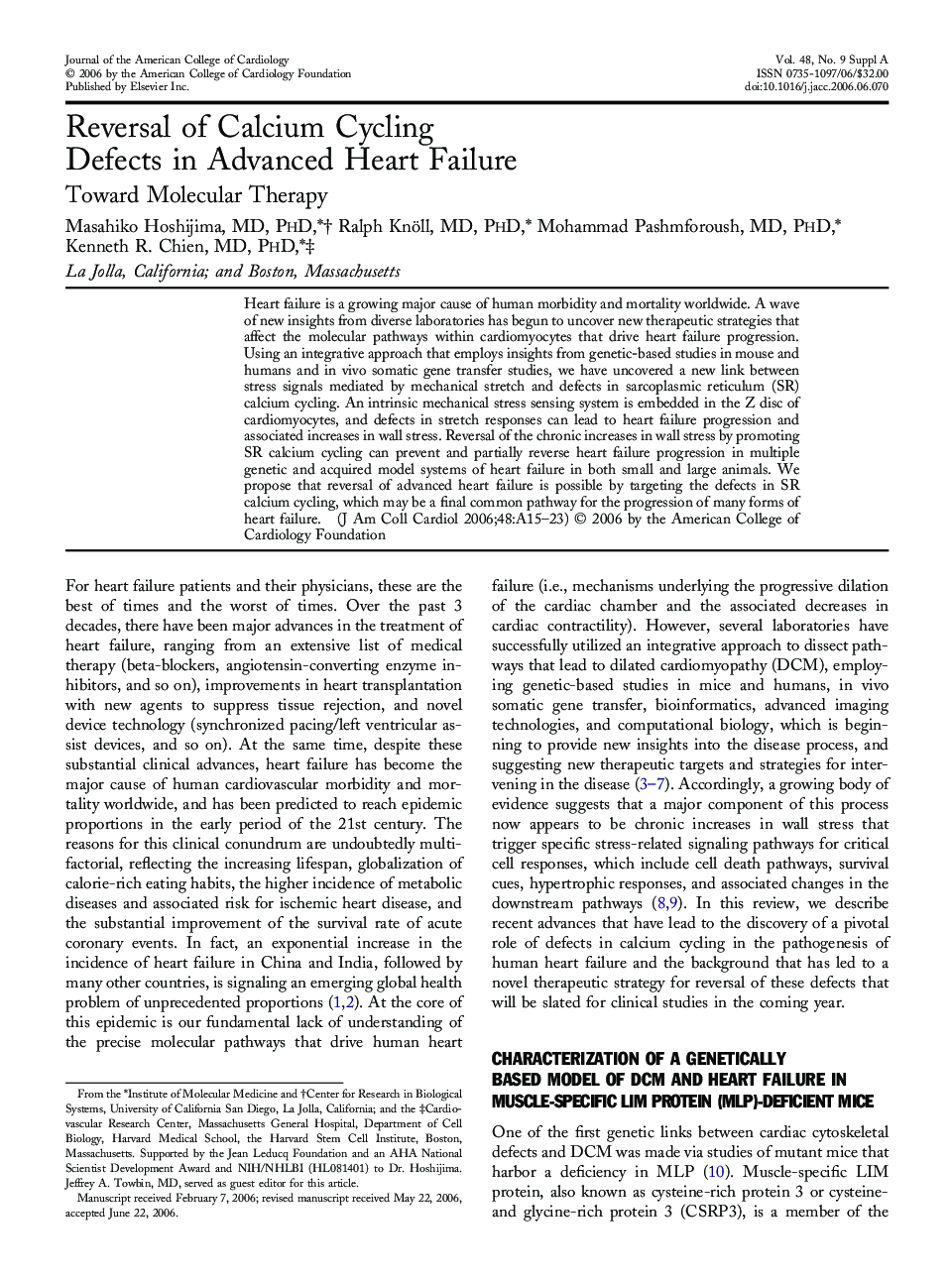| Article ID | Journal | Published Year | Pages | File Type |
|---|---|---|---|---|
| 2953852 | Journal of the American College of Cardiology | 2006 | 9 Pages |
Heart failure is a growing major cause of human morbidity and mortality worldwide. A wave of new insights from diverse laboratories has begun to uncover new therapeutic strategies that affect the molecular pathways within cardiomyocytes that drive heart failure progression. Using an integrative approach that employs insights from genetic-based studies in mouse and humans and in vivo somatic gene transfer studies, we have uncovered a new link between stress signals mediated by mechanical stretch and defects in sarcoplasmic reticulum (SR) calcium cycling. An intrinsic mechanical stress sensing system is embedded in the Z disc of cardiomyocytes, and defects in stretch responses can lead to heart failure progression and associated increases in wall stress. Reversal of the chronic increases in wall stress by promoting SR calcium cycling can prevent and partially reverse heart failure progression in multiple genetic and acquired model systems of heart failure in both small and large animals. We propose that reversal of advanced heart failure is possible by targeting the defects in SR calcium cycling, which may be a final common pathway for the progression of many forms of heart failure.
